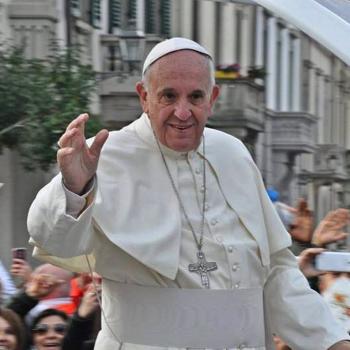My mother arrived to pick me up from my friend’s house on a Saturday afternoon. As she briefly exchanged some words with my friend’s mom at the front door, I heard a woman’s voice screaming words difficult to understand. It wasn’t clear right away from where she was approaching. My mom and I took a few steps back from the door and saw an elderly woman running down the middle of the road from the direction of the main street. She stopped a few feet from us and exclaimed with the little breath she still had in her, “there’s a bomb; at the circus; they’re trying; to diffuse it.”
My mother grabbed me by the arm and we dashed to the car. My grandpa was sitting on the driver’s seat. She said, “go dad, go, go, go!” As we sped away, I saw my friend’s red Volkswagen bug back out from the garage, he and his mother had jumped into their car to get away from the potential explosion.
The Russian Circus had set its tent on one of the few remaining open areas of Benavides Avenue in the district of Santiago de Surco in Lima. It was immediately behind my friend’s house. Had that bomb exploded, it would have been the closest I would have been to one of the countless bombings which happened during my childhood.
This was not an uncommon experience. I remember the booms and the shaking like an earthquake, followed usually by the loss of electricity. Sometimes power returned after a few hours, but it could be days. Curfews, murders, and kidnappings. Welcome to Lima, Peru in the 80s and early 90s when the city was under attack from two significant terrorist groups. I was a child.
After this particular experience, I remember my mother say, “how can they target a circus where so many children would be killed?” One thing was bombing a bank, a television station, or the airport, a whole different story was the attack on a circus full of happy children.
I remember the July 1992 bombing of Tarata Street in the heart of Lima’s affluent Miraflores district. I recall watching the news as a ten-year-old – the scene of people dead blasted against the walls of their apartments, their clothes stuck on the walls like wet spaghetti intertwined with the guts of the dead. A few months after the blast, my mother, my sister, and I drove down the street to survey the burnt-out buildings before they were either demolished or retrofitted.
By the mid 90s, the Peruvian government’s response to terrorism proved effective. Years later however, Peru’s president who oversaw the fight against terrorism was sentenced to life in prison due to his involvement in the execution of civilians. Fujimori, despite all the good he did for the country, now awaits his death in the high security prison he ordered built. When innocent civilians are killed, there must be consequences, regardless of who the perpetrator is.
After the founder of the Shinning Path terrorist group was arrested in September 1992, I recall watching the news with my grandmother. A delegation from the United States had arrived to Lima, and the leader of the delegation spoke of the human rights of Abimael Guzman. Peruvians were ready to execute the man in public – he was responsible for the death of about 80,000. The United States stood as a beacon of virtue, defending the rights of every human person regardless of his or her background.
Civilians die in every conflict, yet in today’s modern world, there is a greater awareness that countries at war must do everything within their ability to avoid the targeting of civilians. Countries have a right to defend themselves, but do not have the right to kill civilians indiscriminately. Otherwise, we are no better than the Crusaders who fought against the Albigensians in Southern France in the thirteenth century, who massacred all and justified their actions saying, “God will know his own.”
Does a horrendous act of terrorism justify another act of terrorism? Can a wrong be made right with another wrong? It is impossible to remain indifferent to the suffering of millions of civilians whose lives are at stake? Do their lives have less value than the lives of others? Does their pain and suffering not cry up to heaven?
As war continues in Israel and Gaza, these are the thoughts that run through my mind. The end goal does not justify the means by which one achieves it. I pray for all the civilians caught up in the middle of this war – the kidnapped, the dead, the ones who have lost family members and their material possessions. I pray that those in authority will find a path of harmony and mutual respect. May they recognize the right for the other to exist, to live and to thrive.
Picture from the Tarata attack on July 16th, 1992, in Miraflores, Lima, Peru (as I remember seeing it a few weeks after it happened)
















